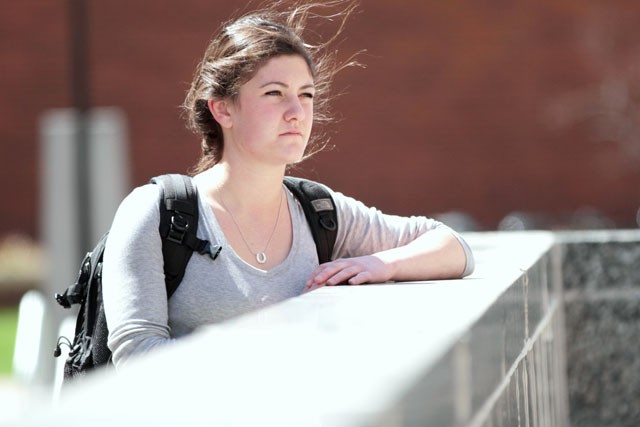Each year, students at the University of Minnesota complete internships in a government organization many people have only experienced through mass media âÄî the prison system.
“The corrections system is definitely a mysterious area for most people,” Joshua Page, an assistant professor in the sociology department at the University, said. “Most people only see the inside of a prison through TV or movies. They have no idea what itâÄôs actually like.”
Students fill more than 25 positions each semester through the Department of Corrections, where they work either directly or indirectly in the stateâÄôs 10 correctional facilities, said Femina Ajayi-Hackworth, the intern coordinator with DOC.
Students work at either the headquarters of the organization or assist departments that provide services to the incarcerated, such as chemical dependency support, adult learning or job-seeking skills, along with coveted positions with the departmentâÄôs investigative units or probation offices, Ajayi-Hackworth said.
Zoe Everett, a sociology junior at the University, completed an internship with the DOC last semester. Planning to attend law school after her undergraduate studies, she thought the program could provide her with an insiderâÄôs view of the prison system.
“It will definitely help me in the future,” Everett said. “It was a really well-rounded program, and now I have a completely different perspective about the system. I have an idea of what really goes on in prison.”
A majority of the students taking part in the program are sociology majors with an emphasis on “Law, Crime and Deviance,” the UniversityâÄôs version of a criminal justice major, Page said. Students studying the justice system and its issues can benefit from the experiences they gather through an internship, either in their future careers or academically.
“The responses have been really positive,” Page said. “After taking classes about the subject, students just want a real-life view into what weâÄôre studying.”
Everett helped the special investigations office of the DOC track Level III sex offenders, or those at high risk of committing another offense. She monitored the phone calls and tracked the whereabouts of released offenders, and visited prisons each week to interview incarcerated offenders. Though Everett worked closely with some inmates, she said she never felt intimidated.
“I was never too worried,” she said. “My supervisor went over what would happen with me, and I felt really safe.”
Many of the projects students work on have a positive impact on the prison system. Students have developed training programs for new corrections officers and health services employees, helped gather crucial statistics to aid lobbying for fewer budget cuts for correctional facilities and organized adult learning classes.
At the womenâÄôs facility in Shakopee, Minn., University students took part in classes aimed at improving the parenting skills of inmates, a program which ended with children of inmates visiting the facility for a weekend, Ajayi-Hackworth said.
Page said students interning with the DOC gain helpful, real-world experience for future careers in the criminal justice field. He said he felt they had benefited a system facing financial issues due to the economy.
“Students can get a lot of exposure to the whole system working with their case managers and in the actual facility,” Ajayi-Hackworth said. “Without programs like this, they wonâÄôt learn why things work the way they do.”


